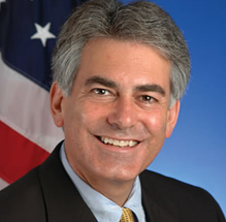Assemblyman Al Stirpe (D-Cicero) announced that he helped pass legislation that would legalize adult-use marijuana for New Yorkers age 21 and over (A.1248-A). While there is widespread support for legalization and studies have shown that legalization would provide much-needed revenue for essential programs, Stirpe worked to ensure New York state took a smart, cautious approach.
“My colleagues and I have worked to craft a measured and deliberate approach toward cannabis legalization that will generate critical revenue for our communities and prioritize public safety,” Stirpe said. “This bill preserves protections for our roadways and employers while generating tens of millions of dollars for community investments and our children’s future.”
The legislation establishes the Office of Cannabis Management along with a governing board and an advisory board. The OCM will review and process applications for marijuana distribution licenses, as well as create a public health campaign and coordinate with other states to implement uniform laws regarding marijuana.
Furthermore, the revenue from legal adult-use marijuana will be reinvested back into New York communities. Under the state’s legalization plan, 40 percent of the revenue will go to help fund education through the State Lottery Fund, another 40 percent will go to the Community Grants Reinvestment Fund and the final 20 percent will go to the Drug Treatment and Public Education Fund.
Although there is some hesitation surrounding the legalization of marijuana, recent research has been shown that legalizing marijuana reduces the violence and trafficking associated with the illegal drug trade, reducing the power and wealth of drug traffickers. Additionally, the majority of people who use marijuana do not go on to use “harder” substances, debunking the popular gateway-drug fallacy.
The tax revenue from legal marijuana has surpassed expectations, with states such as Colorado and California collecting tens of millions of dollars a month. New York state could use this revenue to help fund our students’ education, public safety and vital health care programs, Stirpe said.
